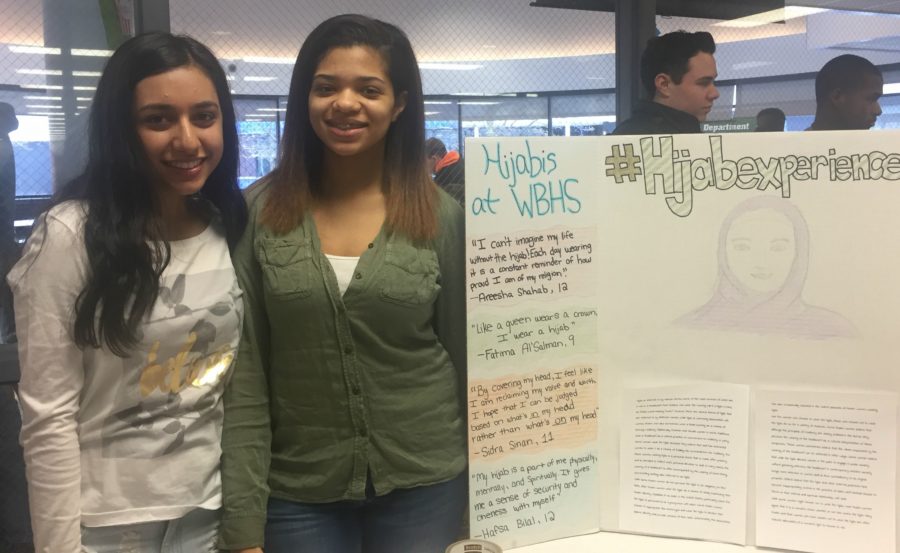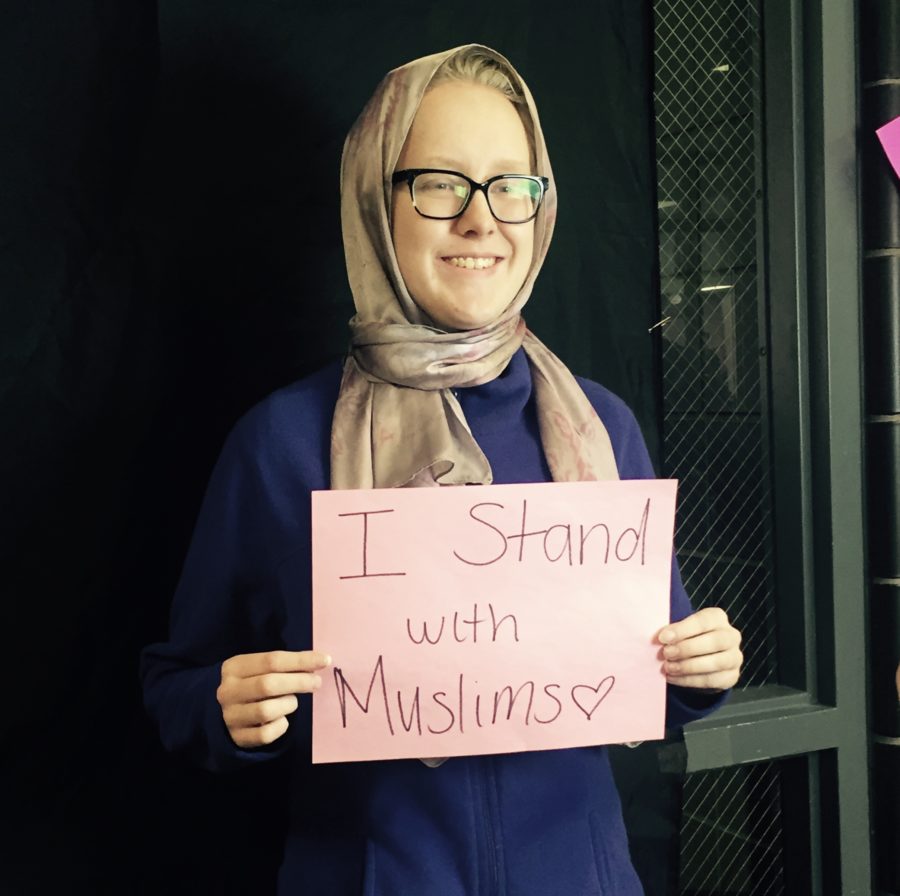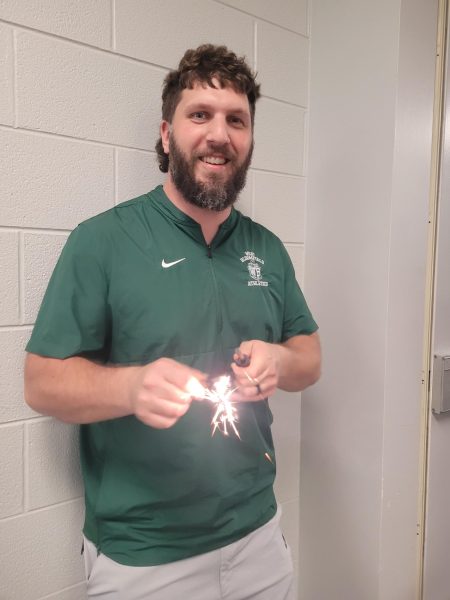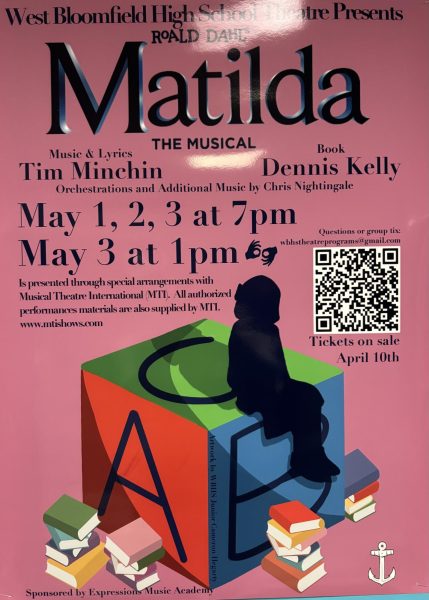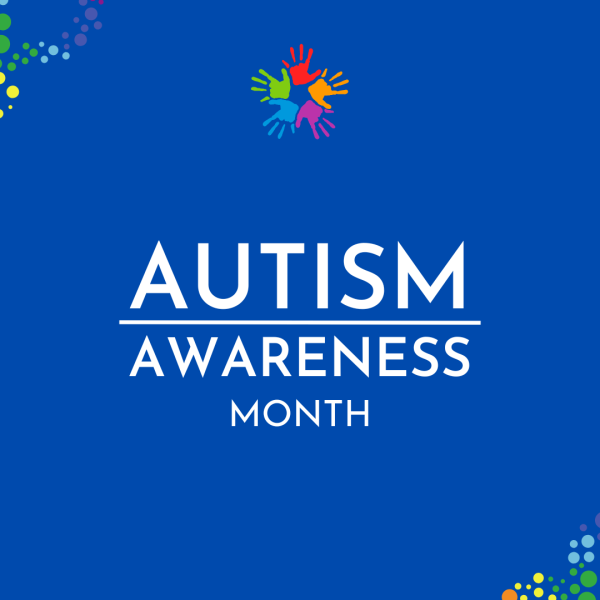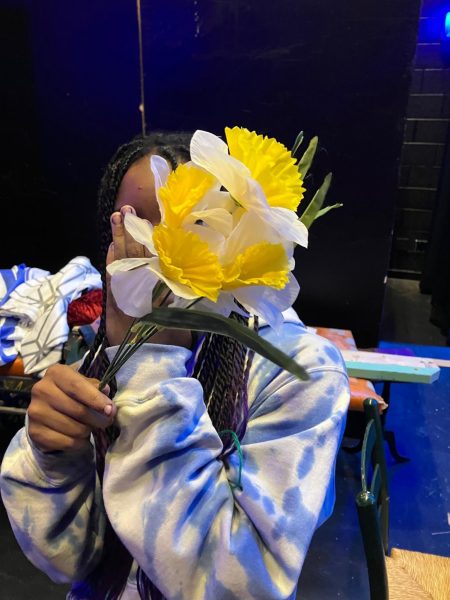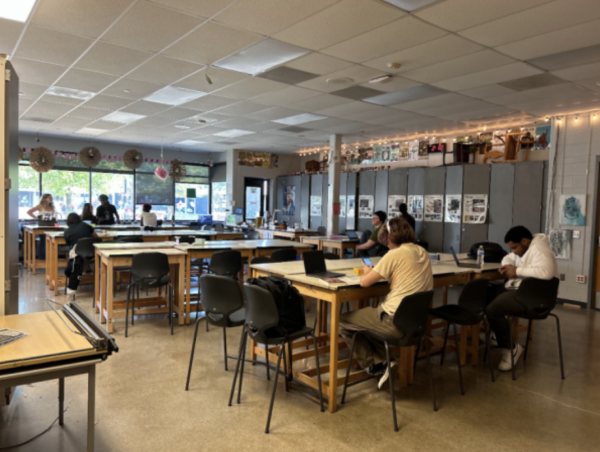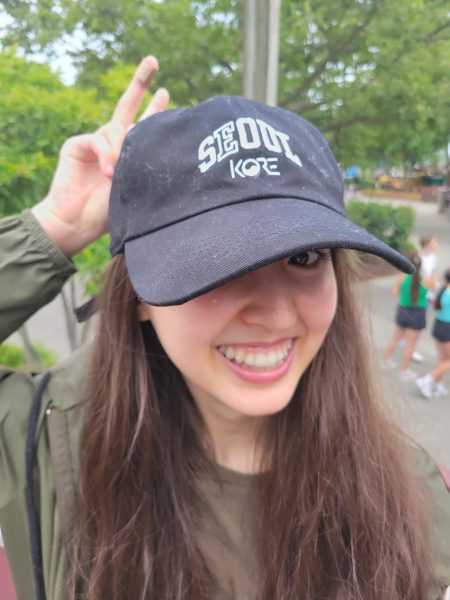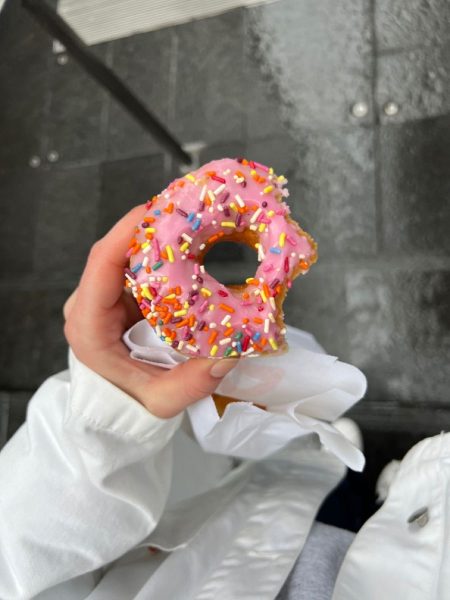The #HijabExperience: Small Idea Makes Great Impact
Social experiment sweeps WBHS student body.
Seniors Blake Griffin and Niha Khan saw what was going on in our society today and decided to take a bold stand. They created the #HijabExperience, a social experiment in which WBHS students had the opportunity to try on a hijab (the traditional head covering of Muslim women) during lunch.
Spectrum sat down with Blake and Niha to find out how they came up with this creative idea, and what they think it means to our community.
What initially inspired you to do this?
Blake: I saw a picture on Twitter of an older woman wearing a hijab, and she was walking through a crowd, and people were throwing eggs at her. That picture messed me up, because I’m like, what if that was my sister, or my aunt, my cousin, or my grandmother. How would I feel? And, I’m not Muslim, I’m a Pentecostal Christian, so my beliefs are completely different, but similar at the same time. So, I texted Niha because I know that she’s Muslim, and we’ve been close since 8th grade. I was like, “I want to do something about it.” She put the screenshot of my text to her on Twitter, and it became real popular.
Niha: Yeah, it blew up. I basically screenshotted what she texted me and posted it. It was really powerful, there were paragraphs about how she felt. She said that she wanted to make a difference, and that our generation needs to stand up and do something. I told her that it was a great idea and that I have so much respect for her for that, because not many people actually want to take a stand. I said that we need more people like this in the word. Once I tweeted that, I got several messages from people saying that they were interested. Another person from another school told me their friend did this and got a lot of hate for it. We didn’t really care about that, we just wanted to see who would do it. I know that things like this have been done before, it’s not like we’re the first people in the world to do this, but no one’s done in in our community. We have a very diverse community, so we wanted to see.

How are you two proving the older generations wrong by coming up with social experiments like this using social media?
Niha: Obviously they think that all that matters for us is our Iphones, makeup, social media, simple stuff like that. They think that we don’t care about what’s going on in the world. We’re using social media to bring awareness to what is going on in the world. Who says social media is just for fun? You can do other stuff too.
Blake: I feel that if all these horrible rappers and disrespectful people can get big off of social media, then how come we can’t?
Niha: And we wanted fellow Muslims to feel more comfortable too. If we stand united together, and I know our school has done this many times, it makes us feel more like a family.
Blake: We’re always talking about Laker family. But I just got really really sick of the kids who didn’t know how to appreciate other cultures besides their own. I had a debate class last year and we always talked about social issues and current events. I would be in class, and I would listen to these kids talk about the Muslim students here and how they didn’t understand them and how they felt threatened. It left me feeling, like, why?
What difficulties did you have with implementing this project here? What stood in your way?
Niha: The planning. We planned it out in November, but we didn’t actually do it. We weren’t sure about what type of reaction we would get.
Blake: The political race kind of stopped us from doing it.
Niha: Yea, there was a lot going on. For a while, Muslims were the topic. But then, things would change.
Blake: There was a lot of tension, and we didn’t want to put anyone in harm’s way.
Do you think that an experiment like this shows students that major political events also can affect their peers on a personal level?
Niha: Yea, we hope we acknowledged that, because that is one of the things we wanted to focus on. We wanted some people who would never know what it feels like, to have that experience.
Blake: A couple girls said that they felt prettier when they had the hijab on, I felt powerful, it’s just different.
Niha: It’s just for modesty, it’s simple. Hijab means modesty. It doesn’t mean that you’re below men or subservient to them, it’s just a choice that women make. If they choose to do it, it’s just a symbol of their faith. I respect that, even though I don’t wear it. Some people feel like they’re obligated to wear one if everyone in their family wears it, but I never felt that. Islam is a religion of peace. But obviously, that’s not what is seen in the media. For some people when they think of Islam, they connect it with terrorism or 9/11, even though the religion itself has nothing to do with that.
So what do you two have planned next?
Blake: I feel like our next project is gonna be great. I was thinking that we would do something with the Latino community. I know a lot of Latinos here, and I feel like now is the perfect time to teach kids about what’s going on.
Niha: And I would love to learn about that. The good thing about us is that we are very open to ideas. If anyone gave us ideas, we would do almost anything. As long as it’s sending a positive message, we would do it.
Check out the photos of WBHS students trying on hijab at #HijabExperience on Twitter, or in the gallery below:
Have an idea for Niha and Blake’s next social experiment? Leave it in the comments below!
Your donation will support the student journalists of West Bloomfield High School. Your contribution will allow us to purchase equipment and cover our annual website hosting costs.
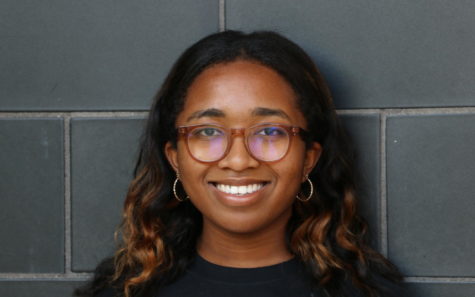
Lauryn Azu is a senior at WBHS who enjoys writing, reading good books, practicing yoga, and hanging with her dog Cinnamon. She anticipates the challenges...


